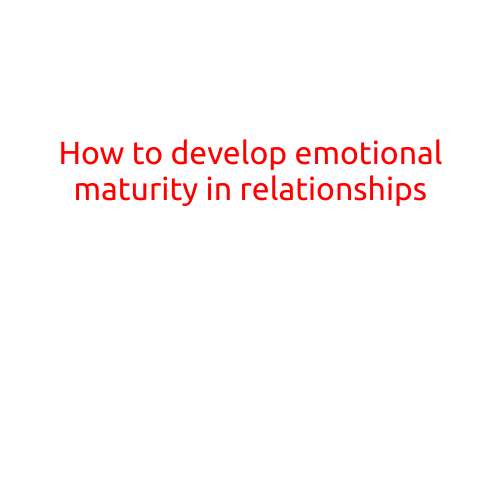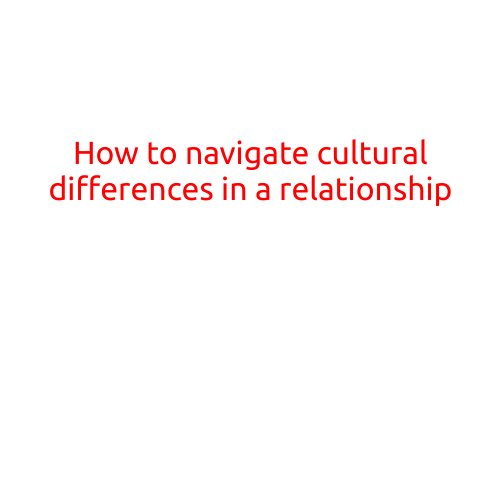
How to Develop Emotional Maturity in Relationships
Developing emotional maturity is a crucial aspect of building and maintaining healthy relationships. Emotional maturity refers to the ability to manage one’s emotions, thoughts, and behaviors in a way that is respectful, considerate, and responsible. In this article, we will explore the importance of emotional maturity in relationships and provide tips on how to develop it.
Why Emotional Maturity is Important in Relationships
Emotional maturity is essential in relationships because it allows individuals to:
- Communicate effectively: Emotional maturity enables individuals to express their thoughts and feelings clearly and respectfully, without being overly defensive or aggressive.
- Manage conflict: Emotional maturity helps individuals to deal with conflict in a constructive way, by listening actively, remaining calm, and finding solutions.
- Show empathy and understanding: Emotional maturity allows individuals to put themselves in their partner’s shoes and understand their perspective, leading to deeper intimacy and connection.
- Practice forgiveness: Emotional maturity enables individuals to let go of grudges and resentments, creating a more positive and harmonious relationship.
Signs of Emotional Immaturity in Relationships
Before we dive into how to develop emotional maturity, it’s essential to recognize the signs of emotional immaturity in relationships. Some common signs include:
- Blame-shifting: Putting the blame on your partner or others rather than taking responsibility for your actions.
- Defensiveness: Becoming overly defensive or aggressive when criticized or confronted.
- Lack of empathy: Ignoring or dismissing your partner’s feelings and needs.
- Control issues: Trying to control your partner’s actions or decisions.
- Passive-aggressive behavior: Being intentionally ambiguous or unclear about your intentions, leading to frustration and resentment.
Tips for Developing Emotional Maturity in Relationships
Developing emotional maturity takes time, effort, and practice. Here are some tips to help you get started:
- Practice Self-Awareness: Recognize your emotions, thoughts, and behaviors, and how they impact your relationships. Be honest with yourself, and acknowledge areas where you may need to improve.
- Communicate Effectively: Learn to express yourself assertively and respectfully, without being aggressive or passive. Practice active listening, and make an effort to understand your partner’s perspective.
- Take Responsibility: Own up to your actions, and take responsibility for your mistakes. Avoid blame-shifting, and apologize sincerely when needed.
- Practice Empathy: Put yourself in your partner’s shoes, and try to understand their feelings and needs. Show compassion and understanding, and be supportive.
- Manage Your Emotions: Learn to recognize and manage your emotions, rather than letting them control you. Take a step back, breathe, and reassess the situation before reacting.
- Practice Forgiveness: Let go of grudges and resentments, and work towards forgiveness. Holding onto negative emotions can create tension and damage the relationship.
- Seek Feedback and Acknowledge Criticism: Ask for feedback from your partner, and be open to constructive criticism. Use this feedback to identify areas for improvement, and make necessary changes.
- Practice Patience and Understanding: Relationships are not always easy, and conflicts will arise. Practice patience, understanding, and compassion when dealing with conflicts, and try to find win-win solutions.
Conclusion
Developing emotional maturity in relationships requires effort, patience, and practice. By recognizing the signs of emotional immaturity, practicing self-awareness, communication, and empathy, and seeking feedback and forgiveness, you can improve your emotional maturity and build a stronger, more resilient relationship. Remember that emotional maturity is a lifelong process, and it’s okay to make mistakes along the way. With time and effort, you can develop the skills and habits necessary for a happy, healthy, and fulfilling relationship.





